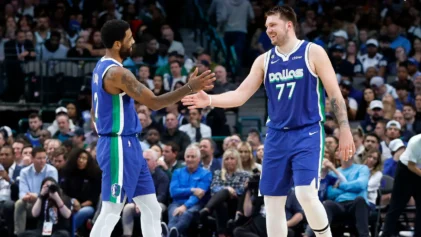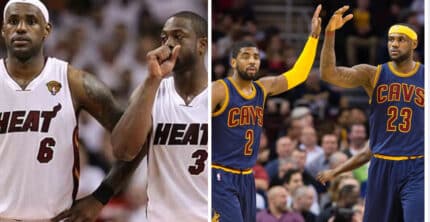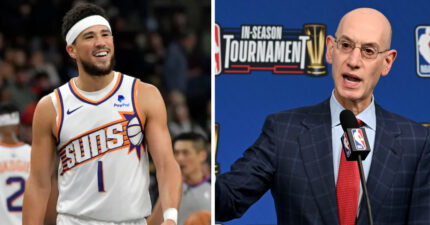Apparently, the report from FS1’s Ric Bucher that Brooklyn Nets guard Kyrie Irving wanted his new contract to guarantee he wouldn’t play more than 60 games per season and no back-to-backs was false.
Ric Bucher: "I'm told [Kyrie Irving] wanted his new contract to guarantee he wouldn't have to play more than 60 games in a season and would not have to play any back-to-backs." https://t.co/fOwF0Vrlso
— NBACentral (@TheDunkCentral) August 11, 2022
Irving sent one of his rambling tweets about the media controlling your subconscious, and invited fans to “break free” and join him on one of his “platforms.”
When you’re ready to Break free from the media’s control over your subconscious thoughts and emotions, meet me on One of my platforms and let’s chop it up.
We the A11Even tribe love our conversations about the TRUTH and what is truly happening.
Welcome to the
PARADIGM SHIFT♾— Chief Hélà 🤞🏾 (@KyrieIrving) August 11, 2022
Bucher believed his source is credible and said that a story like this is believable given who Irving has proved to be over his career.
Thanks for asking, @EmmanuelAcho pic.twitter.com/Fa324E6h6d
— Ric Bucher (@RicBucher) August 11, 2022
Irving ultimately didn’t get that contract, but the provisions he wanted actually make sense, not just for him but the entire NBA. The problem is he’s the wrong messenger.
The NBA’s 82-game regular season is entirely too long and we don’t see the best players playing at their best late in the playoffs. The players are gassed after the lengthy season and not just from those games, according to TrueHoop’s David Thorpe.
“But it’s not just the 82 so much as the hundreds — if not thousands — of games they play before reaching the NBA. Sure, salaries are higher than ever, but that workload history means today’s players are at greater risk of injury than ever, too. They’re also becoming less connected to society in general.”
I’ve spoken to sports scientists, trainers and sports medicine professionals and they generally agree an 82-game regular season is too taxing a load on the body. Two physical loads (games) over a seven day period is the consensus by that informal group.
If the 58-game schedule were played over the same mid October to April time period, you wouldn’t have more than two games played by any team over a seven day period. You could even incorporate “Champions League” breaks like they do in European football for the in season tournament NBA commissioner Adam Silver has teased for years.
That schedule would allow for a recovery day, a strength training day, a practice day (coaches will be happy about this), a cardio and skill development day and film study. None of these things happen during the regular season. Players often strength train immediately following a game or the morning of, and there is essentially no practice during the regular season.
Irving is 100 percent correct with his wishes. If they were adopted by the whole league you would have healthier players, higher quality basketball and more fan interest as regular season games would mean more.
Silver often says he lets the science dictate and the NBA speaks to its medical partners. He addressed it during this year’s Finals.
“As I have said before, what we don’t see is increased numbers of injuries as the season goes on. It’s not as if because of fatigue over the course of a season, you see more injuries,” Silver said. “We do see a connection between actual fatigue, for example, from back-to-backs or three in a row. We think that potentially can lead to more injuries.”
What data is Silver looking at? What sports scientists and medical professionals interpret this data? It would be helpful if he and the league were transparent on this. That science doesn’t seem to add up.
NBA players enter the league with bodies that are bogged down with mileage from overexertion in the years before the league. How can you legitimately believe the taxing those bodies with 82-games plus playoff games won’t stress said bodies more and lead to increased injuries?
More players should ask for contracts with clauses like this maybe it will force the league to consider a different approach. But Irving is the wrong messenger to be leading this effort.



